Episodes
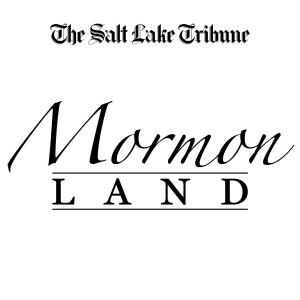
Wednesday Jun 29, 2022
Wednesday Jun 29, 2022
Rusty Bowers, a Latter-day Saint who serves as speaker of the Arizona House, recently captured the attention of the nation when he testified before the House select committee investigating the Jan. 6 siege of the U.S. Capitol.
The Republican officeholder steadfastly and sometimes emotionally told lawmakers of the intense pressure he received from Donald Trump and his allies to appoint alternate electors in a bid to overturn the lawful results of the 2020 presidential election.
Bowers refused. Why? One reason he cited was his faith’s teaching that the U.S. Constitution is “divinely inspired” and that he was determined to uphold his oath to remain true to its principles.
Where and when did this belief in the nation’s founding document begin? And what are the implications when current constitutional questions arise?
Matthew Bowman, Howard W. Hunter Chair of Mormon Studies at Claremont Graduate University and author of “The Mormon People: The Making of an American Faith” and “Christian: The Politics of a Word in America,” explores those questions and more on this week’s show.
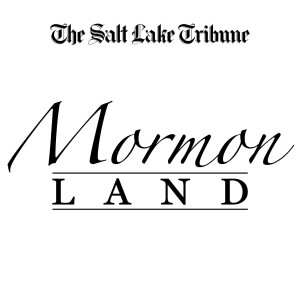
Wednesday Jun 22, 2022
Wednesday Jun 22, 2022
To many white American feminists, the issue of gender equality is paramount. Naturally, their critique of institutions like The Church of Jesus Christ of Latter-day Saints, with its all-male priesthood, is built on women’s lack of decision-making power and absence from the hierarchy.
But some U.S. women of color as well as in other countries find liberation and satisfaction in the Utah-based faith — and even in its patriarchal structure.
That intrigued historian and researcher Caroline Kline, assistant director of the Center for Global Mormon Studies at Southern California’s Claremont Graduate University.
On this week’s “Mormon Land” podcast, Kline shares gender insights she gleaned from scores of interviews with Latter-day Saint women of color in Mexico, Botswana and the United States that appear in her just-released book, “Mormon Women at the Crossroads: Global Narratives and the Power of Connectedness.”
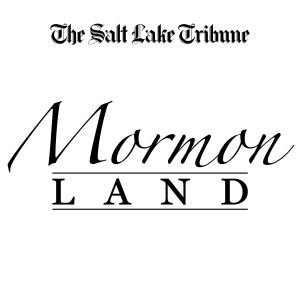
Wednesday Jun 15, 2022
Wednesday Jun 15, 2022
For two months, the FX/Hulu series “Under the Banner of Heaven” has prompted riveting conversations about The Church of Jesus Christ of Latter-day Saints among members, former members and nonmembers.
Like the bestselling book of the same name by author Jon Krakauer, the series recounts the murders of Latter-day Saint mom Brenda Lafferty and her 15-month-old daughter, Erica, by brothers-in-law Ron and Dan Lafferty.
It also includes flashbacks to violent episodes in Mormonism’s early history and a fictional Latter-day Saint detective — played by actor Andrew Garfield — who undergoes his own faith journey as he uncovers troubling aspects of his religion while investigating the horrific crimes.
The writer-producer who put this all together is Oscar-winning filmmaker Dustin Lance Black, who earned an Academy Award in 2009 for his screenplay of “Milk” and was one of the writers for HBO’s “Big Love.”
Now that the final episode of “Under the Banner” has aired, Black talks about the project, his artistic decisions, the praise and criticism he has received and what viewers — Latter-day Saints and others — should take away from the show.
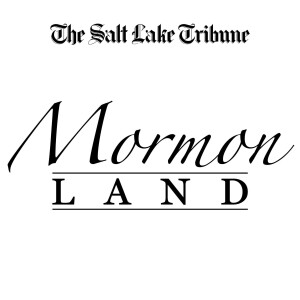
Wednesday Jun 08, 2022
Wednesday Jun 08, 2022
A woman who has been part of the Mormon Moms TikTok network, known as "MomTok," recently told her millions of followers that she was getting divorced. The reason? She said she and her husband had participated in what she called “soft swinging.”
Though unverified, the video went viral and has been reported widely — and salaciously — on social media. Many questions remain about the story, but whether true or not, it does shine a light on The Church of Jesus Christ of Latter-day Saints and its teachings about sexuality in marriage.
On this week’s show, Jennifer Finlayson-Fife, a licensed therapist in Chicago who specializes in working with Latter-day Saint couples on sexuality and relationship issues, discusses those issues and more.
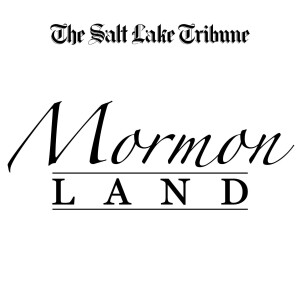
Wednesday Jun 01, 2022
Wednesday Jun 01, 2022
In recent weeks, the U.S. has seen two more mass shootings — one at a grocery store in Buffalo, New York, and the other at an elementary school in Uvalde, Texas.
Though President Russell M. Nelson of The Church of Jesus Christ of Latter-day Saints has made at least one comment suggesting that gun laws are too lax and apostles David A. Bednar and Jeffrey R. Holland have lamented the shootings, the Utah-based faith has not made any official statements about these tragedies specifically or gun violence generally.
Is it a moral issue for Latter-day Saints? Should it be? What does Latter-day Saint theology have to say about the issue?
Discussing those questions and more n this week’s show are Patrick Mason, head of Mormon history and culture at Utah State University and the author or editor of several books, including “Mormonism and Violence: The Battles of Zion,” and “Proclaim Peace: The Restoration’s Answer to an Age of Conflict,” and Janiece Johnson, historian of American religion and the author of books on Latter-day Saint women and the Mountain Meadows Massacre, including the forthcoming “American Punishment: The Mountain Meadows Massacre and Mormon Transgressions.”
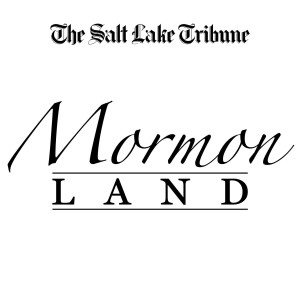
Wednesday May 25, 2022
Wednesday May 25, 2022
Five students at Brigham Young University who call themselves the Black Menaces are on a mission to raise awareness about racism and other challenges facing The Church of Jesus Christ of Latter-day Saints and its flagship school.
With iPhones in hand, they crisscross the campus, posing provocative questions to the mostly white students about race, LGBTQ issues and marginalized communities. They then post the two-minute clips on TikTok.
On this week’s show, two of the Menaces, Rachel Weaver, from Chicago, and Kennethia Dorsey, of Nashville, Tenn., discuss what they have learned, what they hope to accomplish, and what BYU can do to change.
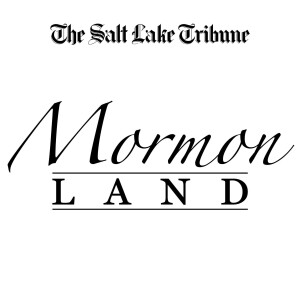
Wednesday May 18, 2022
Wednesday May 18, 2022
Growth in The Church of Jesus Christ of Latter-day Saints bounced back a bit last year after taking a pandemic plunge in 2020. The global faith saw its overall membership rise by 0.8% during 2021 to top 16.8 million.
Africa has led the way, accounting for 10 of the 14 fastest-growing nations in terms of Latter-day Saint growth the past two years.
In the United States, from the start of 2020 to the end of 2021, membership increased 0.6% to exceed 6.7 million. South Dakota, Arkansas and Tennessee grew the fastest, while California, North Dakota and Washington were the biggest percentage losers. In fact, 21 states plus the District Columbia actually saw their membership tallies shrink.
On this week’s show, Matt Martinich, an independent researcher who dutifully tracks these statistics and more for the websites cumorah.com and ldschurchgrowth.blogspot.com, discusses the ups and downs and ins and outs of church growth and how the membership is booming in some places and dwindling in others.
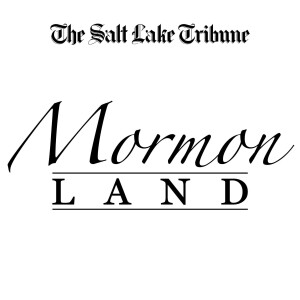
Wednesday May 11, 2022
Wednesday May 11, 2022
He defeated a popular Democratic senator, arguing that three terms were enough, and then proceeded to serve more than twice as long (seven terms) — longer than any Republican in Senate history.
During those 42 years, this conservative loyalist teamed up with a liberal lion, Sen. Ted Kennedy, to create the Children’s Health Insurance Program and the Americans with Disability Act.
He eventually became among the staunchest defenders of Donald Trump, shepherding through a major tax overhaul and helping to shape the conservative majority of today’s Supreme Court. These justices appear poised to overturn the landmark Roe v. Wade decision, which gave women a constitutional right to abortion.
Through it all, Orrin Hatch, who died April 23 at age 88, often touted his membership in The Church of Jesus Christ of Latter-day Saints and championed the cause of religious liberty.
In fact, historian Benjamin Park says in a recent Washington Post piece, Hatch helped transform the nation’s Latter-day Saints into one of the most reliably red voting blocs.
On this week’s show, Park discusses the late senator, his influence, his politics, his piety and his place in history.
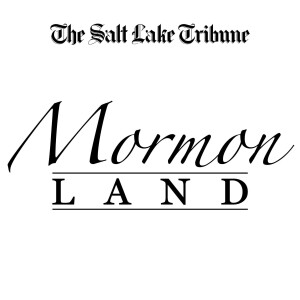
Wednesday May 04, 2022
Wednesday May 04, 2022
The FX/Hulu television series “Under the Banner of Heaven” has generated a social media storm among members of The Church of Jesus Christ of Latter-day Saints as well as former members and religion observers.
It tells the story of the gruesome 1984 murders of Brenda Lafferty and her 15-month-old daughter, Erica, at the hands of her husband’s two brothers. The story is built on a bestselling book of the same name by journalist Jon Krakauer, whose thesis is that religion — all religion and especially Mormonism — leads inevitably to violence.
Viewers of the first two episodes are debating whether the depictions are true to the faith of the 1980s and whether the actions of the investigators make sense — especially those of the fictional detective, played by Oscar nominee Andrew Garfield, whose faith journey is at the center of the show.
Mormon studies scholars, however, may be less concerned with artistic license than with the series’ conclusions.
On this week’s podcast, three religion experts offer their views of the show, the book, the history, the premise, the portrayals — what the filmmakers get right and what they get wrong — and how Latter-day Saints themselves can learn from all of this.
Join us to hear from Patrick Mason, chair of Mormon history and culture at Utah State University; writer and researcher Jana Riess of Religion News Service; and Janan Graham-Russell, who recently completed a fellowship in Mormon studies at the University of Utah.
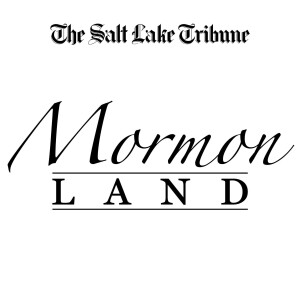
Wednesday Apr 27, 2022
Wednesday Apr 27, 2022
To say that leaders of The Church of Jesus Christ of Latter-day Saints often talk about religious freedom would be, well, an understatement.
It is a common theme from the top apostles on down and appears to be a favorite topic of Dallin Oaks, first counselor in the governing First Presidency and a former Utah Supreme Court justice. Recently, President Camille Johnson, global head of the children’s Primary organization and herself a high-powered attorney, picked up on the theme as well in an address in Iowa.
The church has been calling for a balancing of religious liberty and LGBTQ protections. It succeeded in passing such legislation in Utah and has pushed for similar measures in Arizona and Georgia.
It also backs the proposed federal Fairness for All Act, which a number of prominent LGBTQ and civil rights groups oppose.
So why all the attention on religious freedoms? Are they really under threat? If so, from where or whom? And is compromise not only possible but also preferable?
On this week’s show, Sarah Barringer Gordon, a law professor at the University of Pennsylvania and an expert on religious liberty who has written notably about Mormon history, explores those questions and more. She notes, among other points, that the issue has been politicized in the legislative arena and states that while some perceived risks to faith freedoms may be more imagined than real.

More Mormon Land
There's more to "Mormon Land" than just the podcast. You can get access to episode transcripts, Tribune faith stories and more on Patreon.
Sign up for the free weekly Mormon Land newsletter to get the latest happenings about the church from around the world.
And follow Mormon.Land on Instagram.







